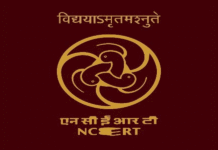The Electricity Department of the Andaman and Nicobar Administration is launching a 15-day campaign of awareness camps from September 4 to promote Rooftop Solar (RTS) installations under the Pradhan Mantri Surya Ghar Yojana (PMSGY). The initiative is aimed at accelerating grassroots adoption of rooftop solar energy and ensuring timely achievement of targets under the scheme.
Officials said the camps will be held across multiple locations in the islands in close coordination with Revenue Department staff. The purpose is to create public awareness about the benefits of rooftop solar, guide residents through the registration process, and provide clarity on procedures such as land mutation and subdivision, which often delay project approvals. Empaneled vendors will also be involved, allowing on-the-spot beneficiary enrolment.
The programme has been designed to combine outreach with practical facilitation. By engaging local communities in gram panchayats and community halls, the department hopes to encourage households to sign up for rooftop solar connections and reduce dependence on conventional power.
The schedule of the camps covers a wide spread of locations, from Beodonabad and Sippighat in South Andaman to Subashgram and Kalighat in North Andaman, Perka and Lapati in Nicobar, and Rangat and Mayabunder in the Middle Andaman region. The Electricity Department has also planned sessions in community halls in Sri Vijaya Puram, including Shadipur, Garacharma, and Delanipur. The final camp will be held on September 23 at Govind Nagar Gram Panchayat in Nicobar.
At each venue, residents will receive information on how to register for the scheme, the financial and environmental benefits of rooftop solar, and the procedure to resolve land-related paperwork in collaboration with revenue officials. The involvement of empaneled vendors is expected to streamline the application process by connecting potential beneficiaries directly with service providers.
Authorities explained that rooftop solar is being promoted not only to reduce household energy bills but also to support the national renewable energy mission. The island territory, with its dependence on diesel-generated power and rising demand, is being positioned as a model for decentralized solar adoption. The initiative is part of India’s broader goal to expand renewable energy capacity and reduce carbon emissions.
For the islands, rooftop solar offers a dual benefit of energy security and cost reduction. Diesel power generation remains expensive and logistically demanding due to the remoteness of the islands. By adopting rooftop solar, residents can contribute to reducing this dependency while simultaneously cutting their household expenses.
Officials also hope the camps will encourage people to see solar energy not only as an environmental measure but also as an opportunity for economic benefit. With provisions under PMSGY offering subsidies and structured financing, the government is aiming to make rooftop solar affordable for a wider section of society.
The success of the programme will depend on active participation by residents and the efficiency of coordination between different government departments. By combining awareness, technical guidance, and administrative facilitation in a single window, the Electricity Department expects to increase beneficiary enrolments during the 15-day drive.
The department has invited the general public to attend the camps and learn about the scheme, stressing that greater adoption of rooftop solar will directly support India’s renewable energy targets.





